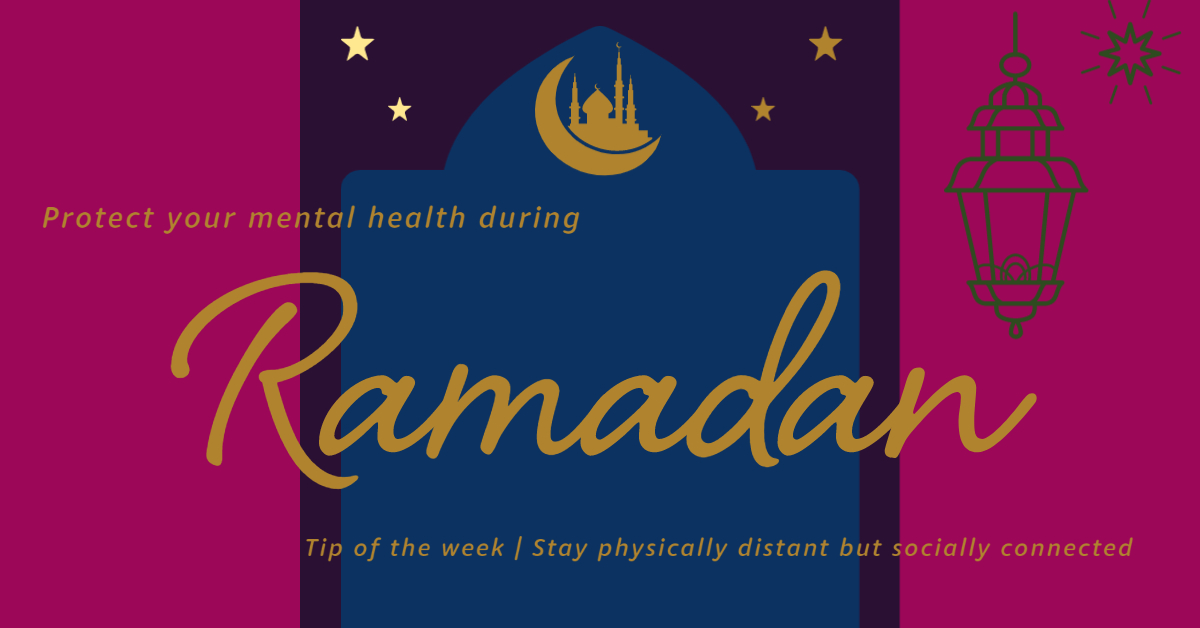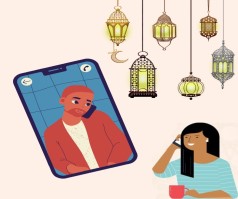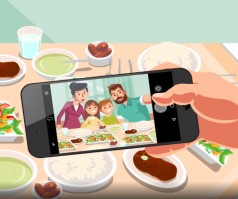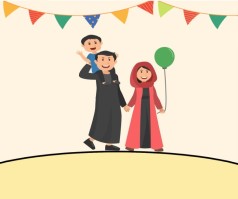
Tip of the week | Stay physically distant but socially connected
Last year, during the Holy month of Ramadan, we shared a different tip every week to promote mental health and well-being, and to help you protect your own mental health, and help others do the same. Once again, Ramadan is back amidst COVID-19 fears and so are we, with a different tip every week, and to remind you that it is normal to feel sad, stressed, confused, scared or angry during those difficult times especially if you are being advised to isolate, stay away from large social, cultural and religious gatherings, and from people you care about to protect yourself and them while vaccination is being rolled out in all countries of the Region.
![]()

Staying connected to your loved ones, no matter where they are, will help you cope better with any stressors you may be feeling due to fear or concerns about COVID-19 and vaccination. REMEMBER to get vaccinated to protect yourself and loved ones, especially older people from COVID-19. Vaccination will protect you and them, prevent serious illness and save lives.
Here are some pointers to help you stay physically distant but socially connected during Ramadan.
Check-in by phone or video
Regularly check in on family and friends by phone or video calls to help each other cope, lift one another’s spirits, and reassure each other. This is especially important for older people, who may be feeling lonely and isolated. Make sure they are vaccinated, encourage them to stay active, eat healthy and comply with medical advice, especially taking medications they might be on.

Organize virtual iftars
Bring your loved ones to your table by phone or video calls. This is a great way to have them over and maintain your yearly traditions without putting them or yourself at risk of COVID-19.

Support your children
If you are a parent or guardian, remember that your children may need some extra support as well given the on/off state of schooling and distance from their friends. They are dealing with stress, isolation and boredom, in their own way. If they are being more clingy, anxious, withdrawn, angry or agitated, support them, listen to their concerns and give them extra love and attention during Ramadan.

Protect your mental health: Mental health platform
We have resources to help you protect your mental health because you cannot take care of anyone if you do not take care of yourself. Try our online mental health and psychosocial support platform. You’ll find information about stress and how it affects us, and exercises you can try to relieve this stress. It also has contact information for mental health experts in each of the countries of the Region. Talking can help and those professionals are there to help you.








